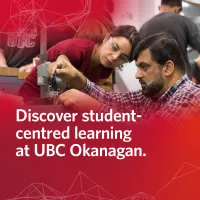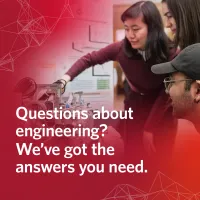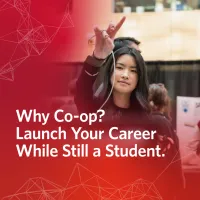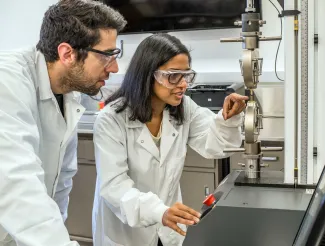"Engineers work collaboratively. When you’re on different projects you see how different people have different approaches."
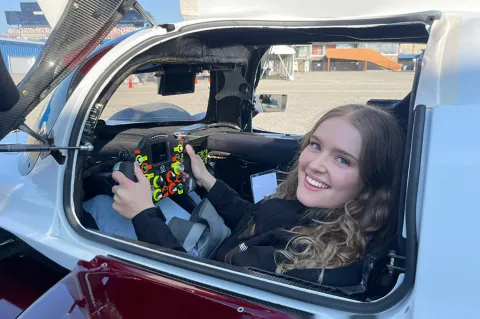
Alexandra Rybka
- Degree:
- Bachelor of Applied Science
- Program:
- Campus: Okanagan
Unlike many students, you didn’t go to university right after high school. Tell us about how you found your way to engineering.
Growing up I was interested in art, math and science. So after high school, I did a year of college, focusing on fine art. I worked in Banff National Park for a few years and then decided that I wanted to pursue a degree in engineering. A few friends from high school had gone through different programs, and while they told me the courses were hard, they all were really happy with their decision to pursue engineering.
I returned to Toronto to upgrade my credits and gain the course requirements I needed to apply to engineering.
What I liked about engineering was that you didn’t need to get additional degrees or education after graduating, and you could begin working right away.
It also seemed to me that there were so many interesting opportunities in engineering in terms of what you could do with the degree.
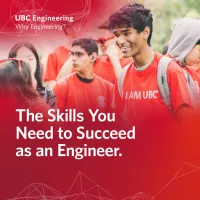
How did you choose Manufacturing Engineering?
When it was time to choose a specialty, I was leaning towards mechanical.
However, I attended an information session for the manufacturing program and was very inspired by one of the profs.
On the Okanagan campus, manufacturing engineering is the closest program option to mechatronics. That’s what sold me on the program, because while I was enjoying the mechanical courses, I was also interested in the computer science and electrical courses. Manufacturing engineering brings it all together.
Tell us about your involvement with OK Motorsports.
OK Motorsports is UBC Okanagan’s Formula racing team. We build builds cars and compete in an annual competition in Michigan hosted by the Society of Automotive Engineers and attended by representatives from all the major automotive and tech companies, from Tesla and Ford to SpaceX.
Our team designs and builds small-scale Formula-style race cars. In my first year, we were using designs from prior years to build the car. Going to the competition was new for all of us.
It was a great learning experience and we received valuable feedback from industry professionals that we incorporated into our design for the next year – when we placed fourth in Canada and 36th overall.
It's very expensive to enter the competition, so this past year has focused on sponsorship and funding as we prep for 2025.
It’s been a lot of work, but when you get to the competition and see the cars you’re racing against, it just makes it all worthwhile.
Being part of a design team is also a valuable experience because you are building up your expertise and project experience – and that can help you stand out when you are applying for jobs.
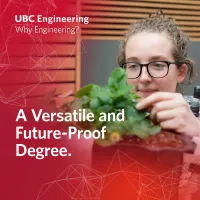
Do you have any advice for engineering students?
I think realizing how many resources you have at your disposal to find the information you need is really important!
That could be going to office hours to ask questions or working with your classmates. Asking for help when you are struggling can also make a big difference in helping you get back on track.
Engineers work collaboratively. When you’re on different projects you see how different people have different approaches.
In the end, you are all working towards the same goal, and you need to develop the skills so you can work cohesively and effectively as a team.
Finally, work experiences are wonderful for expanding your skills and knowledge and figuring out what different workplaces are like and where you might like to pursue your career.
